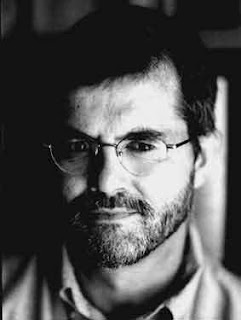“The more people became shocked and worried about him, the more withdrawn he got,” Ms. Castle said.
This quote about Jared Loughner is from the NY Times. It is a huge indictment of the way people in a mental health crisis are treated, before they seek help and even after seeking help. While I would like to think that medical help will alleviate the shock and worry attitude directed to the person, unfortunately, medical intervention usually exacerbates it. Shock and worry is an example of high expressed emotion and is studies show it leads to people doing less well. High expressed emotion (and its opposite, low expressed emotion) is a term that few parents are familiar with.
If we view the person as weird, sick, creepy, we hinder the person’s integration back into society. I have written many times on my blog about how the doctors in our case used language and body gestures that escalated my worry about my son, which I, of course, projected right back onto him. I can only imagine how Chris must have felt getting a double dose of worry.
Actually, I know how Chris felt. The more my husband and I projected worry and concern, the more nervous and isolated he got. His last relapse taught us a huge lesson in this regard. We decided to leave him largely to himself, safe to do and think what he wanted to in the comfort of our home, free to speak or not to speak, free to fail a course, free of our daily cheerful inquiries about his state of mind. Positive concern is still concern, so we backed off talking glowingly about his future prospects. We say very little. Chris is thriving under this approach. He still has a way to go in his rebuilding project, but he’s getting there.
The medical profession and its friend Pharma, has made schizophrenia a very high expressed emotion condition. They tell us it is the “most serious mental illness.” I didn’t know any better at the time and I took them at their word. Being “the most serious mental illness” implies that medical professionals, the people in white coats, are the best people to handle psychosis. The medical professionals, of course, administer drugs, which immediately ups the ante and makes schizophrenia a “very, very serious mental illness.”
Everybody agrees that mental health care needs a huge overhaul. I can’t think of a better way to express the basis for any treatment philosophy and practice than repeat the quote from the top of this page.
“The more people became shocked and worried about him, the more withdrawn he got.”
You can also interpret the quote as one of scale, meaning “the more people” who Loughner shocked and worried, the worse it got for him. For me, this is a clear call to de-escalate a mental health crisis as soon as possible by creating an environment of optimism within a small circle of caring. I have heard that the Open Dialogue Program in Finland does this well. Any large scale attempt to do the same generally falls victim to over-professionalization, almost by definition engendering a climate of fear and worry.
